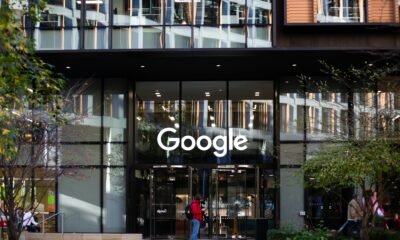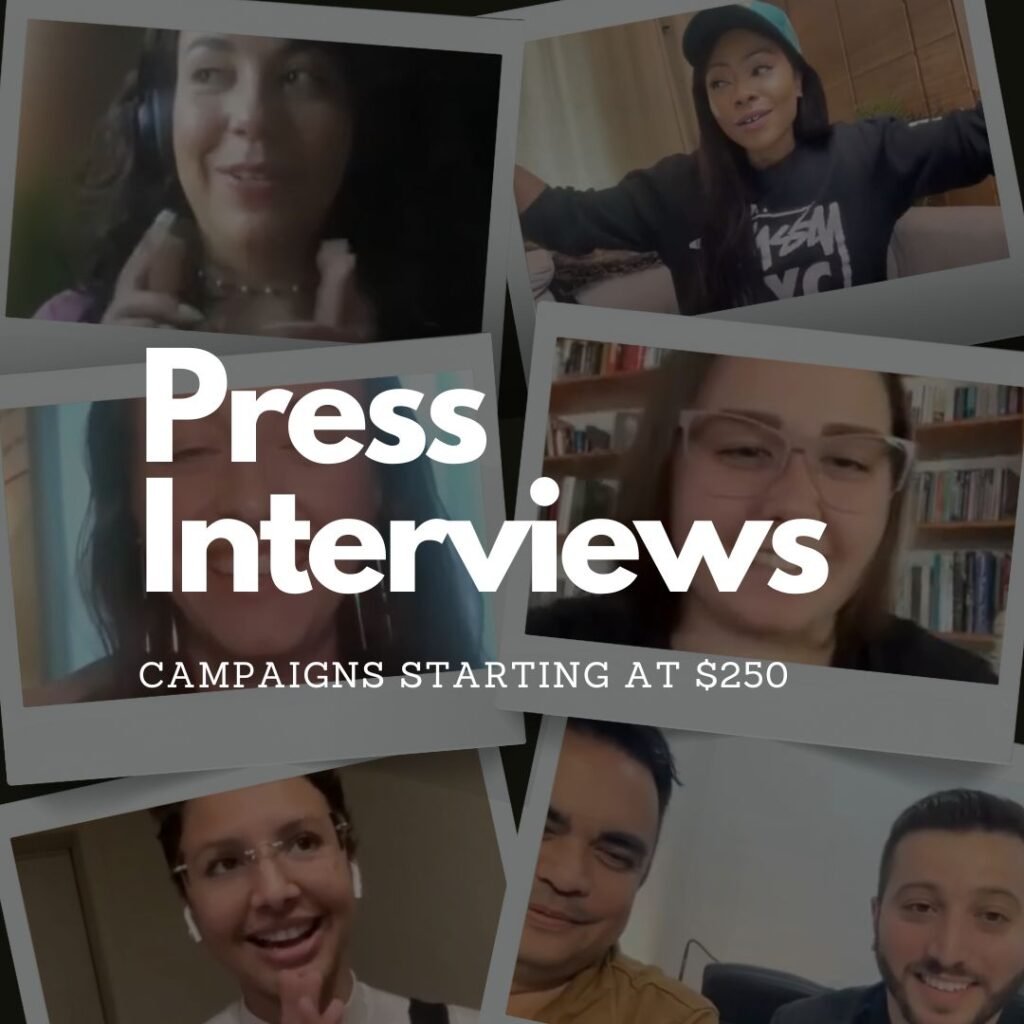Career Growth
The New Realities for College Graduates in the Age of AI

Another uncomfortable truth is emerging in the age of artificial intelligence (AI): for today’s recent college graduates, technological change really may be “different this time”—and not in their favor. While AI promises massive advances and enormous valuations—Anthropic was valued near $170b just six years after founding, and xAI is in talks for $200b—its disruptive impact is felt far beyond Silicon Valley’s boardrooms.

High-Powered AI Growth — and Surging Compensation
There’s no question AI is here to stay. Top leaders in tech are reaping unprecedented rewards, like Apple’s head of AI models reportedly landing a pay package north of $200m at Meta. The world’s business titans are bracing for an “AI tidal wave,” rapidly shifting corporate priorities and talent strategies. But the surge is not lifting all boats. Entry-level talent, especially those newly minted with degrees from prestigious universities, are encountering turbulence the likes of which hasn’t been seen in decades.
Unemployment Trends: College Graduates in Uncharted Waters
Historically, the unemployment rate for recent college graduates in the United States has been lower than for the general population. Yet, for the first time in 45+ years, that relationship has reversed: recent grads now face higher unemployment than the broader workforce. As Oxford Economics’ Matthew Martin notes, “higher educational attainment” no longer guarantees better job prospects. For graduates like Tiffany Lee (Cornell, information science and psychology) and Jacob Ayoub (Boston College, economics and finance), who secured excellent grades and coveted internships, landing a full-time role remains elusive.

Why Are Entry-Level Jobs So Hard to Find?
Graduates are applying for hundreds of jobs—sometimes with little response. In fields like tech and finance, entry-level positions are particularly scarce, with job postings down 21% from pre-pandemic levels, according to Indeed data. Many roles now require 2-3 years of experience even at the supposed entry point, creating a Catch-22 for newcomers.
The reasons are multi-layered:
- The post-pandemic hiring surge has subsided, leading to an overall cooler labor market.
- AI adoption is rapidly accelerating, particularly in tech, where 25% of businesses now regularly use AI, compared to a national average of 5%.
- Sectors traditionally seen as “safe bets” for high-achieving grads—tech, finance, law—are at the forefront of automation and process reengineering.
AI’s impact is direct: Anthropic’s CEO predicts it could “wipe out half of all entry-level white-collar jobs.”

Shifting Opportunities: Who’s at Risk, Who’s Protected
The challenges aren’t distributed evenly. Data reveals men are more likely to struggle: they gravitate toward computer science and tech roles, which face shrinking opportunities. In contrast, women are more often moving into healthcare and education, fields with robust demand (over 40% of female graduates enter these sectors, compared to just 5% of males in healthcare).
What Can Today’s Graduates Do?
The advice from business leaders is clear—stay flexible and build the skills AI cannot easily replace:
- Critical thinking and judgment.
- Broad-based learning in the humanities.
- Interpersonal skills and creative problem-solving.
These “human” attributes are likely to remain in demand, even as AI reshapes the world of work. “Judgment is not going out of style,” says Centerview Partners’ Blair Effron.
Yet, for those in the thick of the search, the long-term promise of AI seems remote in the face of immediate frustration. Many are now weighing costly graduate degrees simply to compete for jobs that once required only a bachelor’s, and questioning whether the system is broken—or whether the rules themselves have changed.
Bottom Line
College graduates did everything right, yet the world shifted underneath them. The AI era is rewriting the rules—fast. Those able to adapt, broaden their skillset, and leverage their uniquely human strengths will be the ones best positioned to ride the next wave, whatever shape it takes. For now, flexibility and resilience are the keys in a workplace transformed by artificial intelligence.
Business
Harvard Grads Jobless? How AI & Ghost Jobs Broke Hiring

America’s job market is facing an unprecedented crisis—and nowhere is this more painfully obvious than at Harvard, the world’s gold standard for elite education. A stunning 25% of Harvard’s MBA class of 2025 remains unemployed months after graduation, the highest rate recorded in university history. The Ivy League dream has become a harsh wakeup call, and it’s sending shockwaves across the professional landscape.

Jobless at the Top: Why Graduates Can’t Find Work
For decades, a Harvard diploma was considered a golden ticket. Now, graduates send out hundreds of résumés, often from their parents’ homes, only to get ghosted or auto-rejected by machines. Only 30% of all 2025 graduates nationally have found full-time work in their field, and nearly half feel unprepared for the workforce. “Go to college, get a good job“—that promise is slipping away, even for the smartest and most driven.
Tech’s Iron Grip: ATS and AI Gatekeepers
Applicant tracking systems (ATS) and AI algorithms have become ruthless gatekeepers. If a résumé doesn’t perfectly match the keywords or formatting demanded by the bots, it never reaches human eyes. The age of human connection is gone—now, you’re just a data point to be sorted and discarded.
AI screening has gone beyond basic qualifications. New tools “read” for inferred personality and tone, rejecting candidates for reasons they never see. Worse, up to half of online job listings may be fake—created simply to collect résumés, pad company metrics, or fulfill compliance without ever intending to fill the role.
The Experience Trap: Entry-Level Jobs Require Years
It’s not just Harvard grads who are hurting. Entry-level roles demand years of experience, unpaid internships, and portfolios that resemble a seasoned professional, not a fresh graduate. A bachelor’s degree, once the key to entry, is now just the price of admission. Overqualified candidates compete for underpaid jobs, often just to survive.
One Harvard MBA described applying to 1,000 jobs with no results. Companies, inundated by applications, are now so selective that only those who precisely “game the system” have a shot. This has fundamentally flipped the hiring pyramid: enormous demand for experience, shrinking chances for new entrants, and a brutal gauntlet for anyone not perfectly groomed by internships and coaching.
Burnout Before Day One
The cost is more than financial—mental health and optimism are collapsing among the newest generation of workers. Many come out of elite programs and immediately end up in jobs that don’t require degrees, or take positions far below their qualifications just to pay the bills. There’s a sense of burnout before careers even begin, trapping talent in a cycle of exhaustion, frustration, and disillusionment.
Cultural Collapse: From Relationships to Algorithms
What’s really broken? The culture of hiring itself. Companies have traded trust, mentorship, and relationships for metrics, optimizations, and cost-cutting. Managers no longer hire on potential—they rely on machines, rankings, and personality tests that filter out individuality and reward those who play the algorithmic game best.
AI has automated the very entry-level work that used to build careers—research, drafting, and analysis—and erased the first rung of the professional ladder for thousands of new graduates. The result is a workforce filled with people who know how to pass tests, not necessarily solve problems or drive innovation.
The Ghost Job Phenomenon
Up to half of all listings for entry-level jobs may be “ghost jobs”—positions posted online for optics, compliance, or future needs, but never intended for real hiring. This means millions of job seekers spend hours on applications destined for digital purgatory, further fueling exhaustion and cynicism.
Not Lazy—Just Locked Out
Despite the headlines, the new class of unemployed graduates is not lazy or entitled—they are overqualified, underleveraged, and battered by a broken process. Harvard’s brand means less to AI and ATS systems than the right keyword or résumé format. Human judgment has been sidelined; individuality is filtered out.

What’s Next? Back to Human Connection
Unless companies rediscover the value of human potential, mentorship, and relationships, the job search will remain a brutal numbers game—one that even the “best and brightest” struggle to win. The current system doesn’t just hurt workers—it holds companies back from hiring bold, creative talent who don’t fit perfect digital boxes.
Key Facts:
- 25% of Harvard MBAs unemployed, highest on record
- Only 30% of 2025 grads nationwide have jobs in their field
- Nearly half of grads feel unprepared for real work
- Up to 50% of entry-level listings are “ghost jobs”
- AI and ATS have replaced human judgment at most companies
If you’ve felt this struggle—or see it happening around you—share your story in the comments. And make sure to subscribe for more deep dives on the reality of today’s economy and job market.
This is not just a Harvard problem. It’s a sign that America’s job engine is running on empty, and it’s time to reboot—before another generation is locked out.
Business
Overqualified? Great, Now Prove You’ll Work for Free and Love It!

The phrase “Overqualified? Great, Now Prove You’ll Work for Free and Love It!” sums up the snake-eating-its-tail absurdity of the modern job search. In 2025, the most experienced, credentialed candidates are told they’re not quite the right fit—because they’re too capable, too seasoned, and might actually threaten the status quo by knowing what they’re worth.

The Experience Dilemma
Picture this: half the workforce has too much education or experience for the entry-level roles on offer, and yet, employers still claim they can’t find “qualified” people. The result? An absurd interview dance where applicants with years of achievement must convince employers they’re perfectly fine being underpaid and unappreciated. Many are even asked to perform hours of free “sample work”—projects that benefit the company but are never compensated.
Nearly half of job seekers have applied for jobs for which they were overqualified this year, and about a quarter feel “overqualification” is a major obstacle to actually getting hired. Employers call it “hiring for culture fit” or “salary alignment.” Candidates call it gaslighting: “We love your credentials, but wouldn’t someone like you get bored… or want a living wage?”.
Free Labor: The New Normal
The job hunt is now a marathon of unpaid labor. Applicants often rewrite resumes dozens of times (to game robotic filters), complete personality tests, and spend weeks in multi-stage interviews, only to be ghosted. In a perverse twist, talented workers jump through hoops for jobs explicitly beneath their skill level, all because employers believe an overqualified hire will “leave at the first better opportunity.” In reality, people just want to pay the bills—and would gladly contribute their value if someone gave them a chance.

Even as companies bemoan a “labor shortage,” they turn away the best and brightest, fearing they’ll disrupt the hierarchy, demand raises, or burn out from boredom. What’s left? The less skilled get trained on the job, and even they are told not to expect too much—after all, wouldn’t you do it for the “experience” alone?.
The Absurdity of the Market
Workers at every level—laid off, mid-career, executives—are hunting desperately for positions once reserved for recent graduates. Administrative jobs that previously required a high school diploma now routinely demand a college degree and relevant work history. Degree inflation means the bar keeps rising, but the pay and job security aren’t budging; 2025’s job search feels more like a dystopian obstacle course than a professional meritocracy.
Employers wield the “overqualified” label to maintain the illusion that they could hire anyone, while making sure they never have to pay what a role is really worth. Ironically, most companies spend more time filtering out talent than developing it—and everyone loses in the end.

What’s the Solution?
Job seekers are increasingly advised to do the following:
- Tailor resumes and cover letters to each application, emphasizing culture fit and signaling “no threat to the boss”.
- Network with insiders for referrals, since faceless applications are now nearly pointless.
- Accept that unpaid proof-of-skills work is now part of the game.
- Keep learning, but remember: adding skills may just make you even more overqualified for the next round.
The paradox of 2025? “Show us your value—just don’t expect to be treated like you have any.” The only thing more overqualified than today’s job seeker is the job market itself: packed with hurdles, full of empty promises, and rigged to keep the most talented quietly waiting for a call that may never come.
Business
The Rise Of Bullsh*t Jobs: Why Gen Z Hates Work

Ever heard someone say, “I facilitate stakeholder alignment across cross-functional work streams,” and wondered what they actually do? If you’ve set foot in the corporate world, you’ve probably encountered job titles and explanations that sound both impressive and baffling. This kind of jargon can make even project management roles sound mysterious—sometimes even to the people who hold those titles.
But vague job descriptions aren’t just corporate in-jokes. Many employees in white-collar settings report feeling disconnected from tangible accomplishments. In fact, some say they can complete their required work in mere hours, while others admit to spending long days at the office with little sense of real achievement.

The Origins of Corporate Bloat
To understand how we got here, it helps to look back at the Industrial Revolution, when expanding industries needed complex management structures to coordinate vast workforces. Innovations like Frederick Taylor’s “scientific management” treated workers almost like machines, focusing on hyper-efficiency—even if this mostly benefited management.
Later, the “M-form” (multi-divisional form) structure became the norm: dividing companies into specialized teams, each with its own middle managers. This was supposed to increase efficiency, but also led to sprawling hierarchies. Efforts to “flatten” organizations have come and gone—shareholders in the ‘80s and ‘90s tried to reduce management bloat, but the complexities of global business brought the managers (and their sometimes-cryptic roles) right back.
Confusing Titles, Fuzzy Duties
Climbing the corporate ladder often means taking on a manager title, whether or not real management is needed. Job titles like “Business Optimization Specialist” or “Synergy Manager” abound, and sometimes even employees struggle to explain what they do day to day. Promotions are frequently tied to new titles instead of more meaningful or specialized work.

A 2022 Harvard Business School study found that managers made up 13% of the U.S. labor force, up from just 9.2% in 1983. Yet many say their workday is dominated by “work about work”—meetings, emails, and status updates, not skilled or creative output.
AI and the “Great Flattening”
One would think technology, especially AI, would help cut down on busy work or unnecessary roles. In some ways, it has: generative AI has reportedly reduced time spent on email and routine documents, and some large companies are once again pushing to cut middle management layers. Amazon, for example, is raising the ratio of individual contributors to managers—but this often just shifts extra reporting and admin work to frontline employees, not always making work itself more meaningful.
Do These Jobs Matter?
Despite the frustrations, quality managers—those who actually enable communication and solve problems—are often essential to preventing organizational chaos. The problem is the sheer excess and occasional misplacement of such roles. Too many layers? Costs increase for everyone, sometimes driving up the price of what the company sells.
Ultimately, dissatisfaction seems connected less to job titles or “BS” work per se, and more to the lack of perceived accomplishment. If workers feel their real skills aren’t being used, or that bureaucracy stifles meaningful output, it’s no wonder they check out.
The Bottom Line:
Corporate bloat and confusing job titles are symptoms of bigger organizational and economic complexities. While AI may trim some busywork, the quest for a sense of purpose at work—and for leaner, more functional corporate structures—is far from over.

 Film Industry2 weeks ago
Film Industry2 weeks agoTurning One Short Film into 12 Months of Content

 Film Industry2 weeks ago
Film Industry2 weeks ago10 Ways Filmmakers Are Building Careers Without Waiting for Distributors

 Film Industry2 weeks ago
Film Industry2 weeks agoHow to Write a Logline That Makes Programmers Hit Play

 Entertainment6 days ago
Entertainment6 days agoWhat the Epstein Files Actually Say About Jay-Z

 Film Industry1 week ago
Film Industry1 week agoAI Didn’t Steal Your Job. It Revealed Who Actually Does the Work.

 News6 days ago
News6 days agoCatherine O’Hara: The Comedy Genius Who Taught Us That Character Is Everything

 Entertainment4 days ago
Entertainment4 days agoYou wanted to make movies, not decode Epstein. Too late.


































